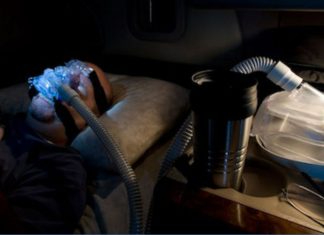Top 5 Desired Changes in Trucking According to Truck Drivers | In the world of trucking, every driver has their own vision of the necessary improvements to make the profession more enjoyable and efficient. Recently, we asked the members of our community of nearly 300,000 followers: “The first thing I would change in trucking is…” Here are the five most frequently cited changes.
1. Regulation and Training Overhaul
A significant number of truck drivers express the need to reduce unnecessary and costly regulations that complicate their daily lives. They also desire a revision of training programs to include more practical road experience, better preparing future truck drivers for the realities of the profession.
2. Improvement of Respect and Education for Motorists
The lack of respect from motorists towards truck drivers is a major concern. Road professionals call for better driver education for all to improve coexistence on the roads and enhance safety for all users.
3. Increase in Wages and Improvement of Working Conditions
The issue of compensation and working conditions is frequently raised. Truck drivers ask for wage increases that reflect the real value of their work and fair conditions, including the recognition of overtime after 40 hours of work and access to a pension fund.
4. Reform of Logistics Systems and Intermediaries
There is palpable frustration regarding the role of intermediaries in the logistics industry. Truck drivers criticize certain practices by intermediaries who, they feel, reduce their share of the profits without effectively contributing to the transport value chain.
5. Modification of Imposed Technologies, like ELOG
The mandatory use of technologies such as the electronic logbook is often criticized. Many truck drivers find it restrictive and poorly suited to their needs, and they advocate for a more flexible approach that would allow them to choose the technological tools most suited to their work.
Besides these points, debates within the truck driver community clearly show that two major concerns also affect the sector: racism towards newcomers and resistance to the authority of road controllers. Although these two issues are distinct, they raise important questions about culture and practices in the trucking industry.
On one hand, there is notable tension concerning racism towards newcomers, which can be exacerbated by serious incidents or accidents on the road. This phenomenon underscores a crucial need to promote a more respectful and secure integration for these new truck drivers. Improved training on safe driving practices, combined with diversity and inclusion awareness programs, could help reduce these tensions and improve safety for all.
On the other hand, resistance to the authority of road controllers reveals a distrust of regulations and interventions perceived as arbitrary or overly punitive. This indicates the need for more transparent communication and collaboration between truck drivers and authorities to clarify expectations and rules, ensuring that controls are fair and understood by all.
By addressing these two issues separately but proactively, the industry can work to create a fairer and safer work environment. Eradicating racism must be a top priority, clearly affirming that discrimination has no place in trucking, nor in any other sector. Simultaneously, improving relations with regulatory authorities can help reduce friction and build mutual respect essential for efficient and safe transport operations.
Furthermore, the “phenomenon of incorporated drivers,” which refers to the practice of incorporating as a means for truck drivers to manage their affairs, raises questions about the economic and legal structures of the sector. The incorporation of drivers is often seen as a necessity by some. However, it also sparks debates and confusion among drivers about its real implications for their individual situations.
In conclusion, these requests highlight a common desire for simplified procedures, better professional recognition, improved working conditions, and enhanced communication to make the environment for all truck drivers more harmonious and respectful. The proposed changes aim to improve the daily lives of truck drivers as well as the safety and efficiency on the roads.
















